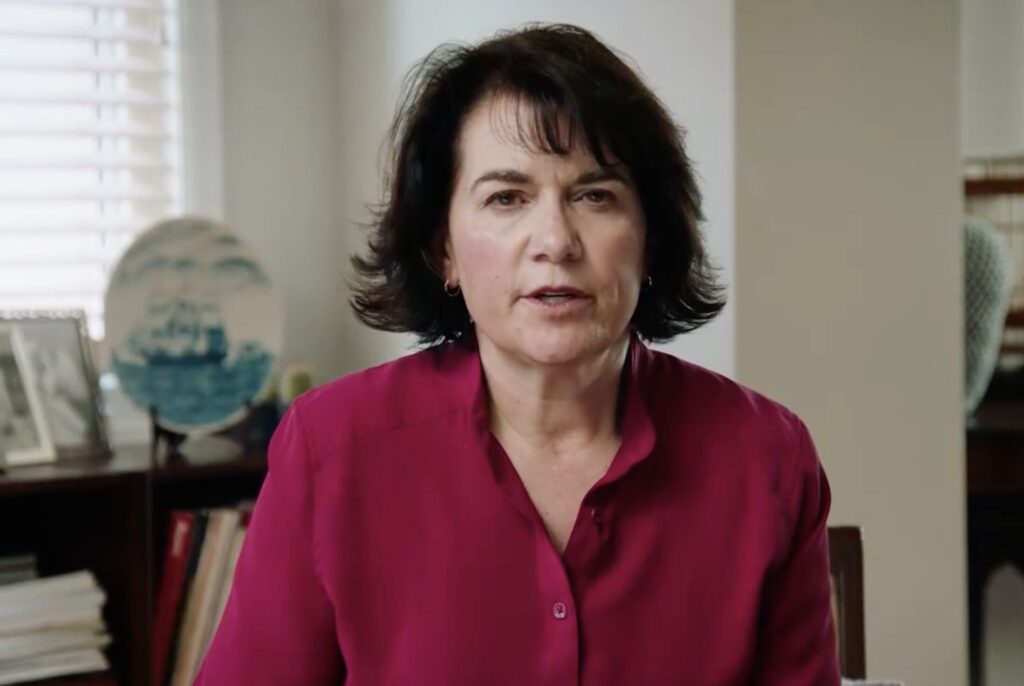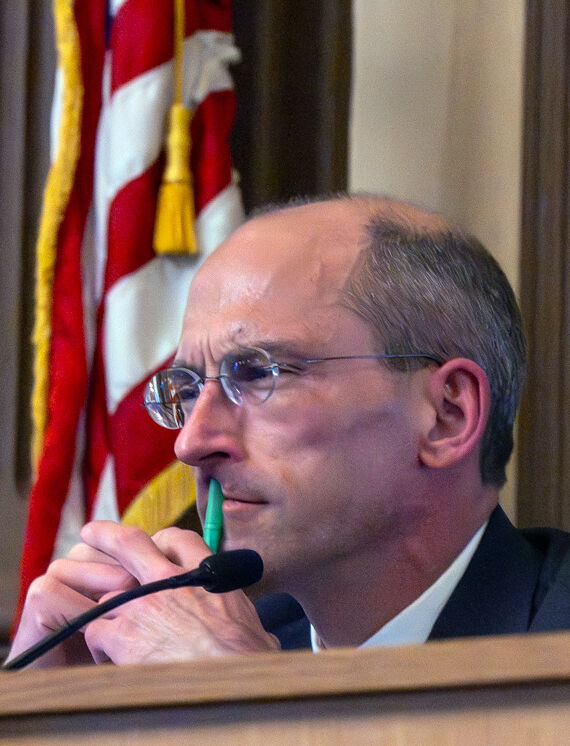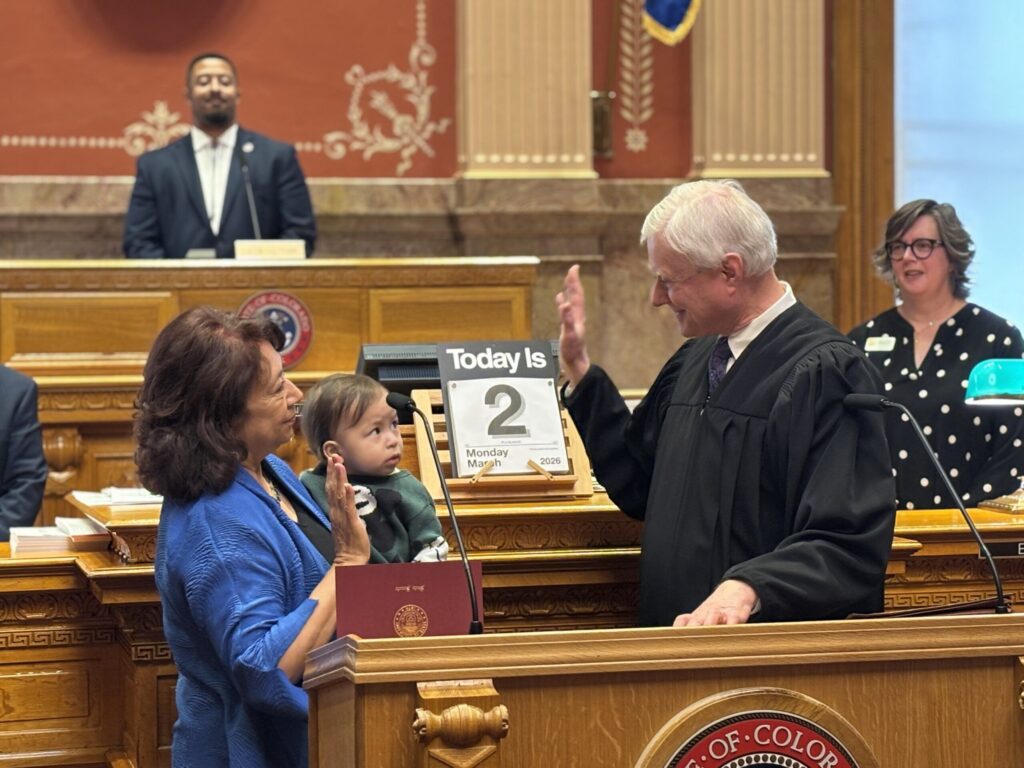Q&A with Sen. Chris Holbert | Looking forward to life after the legislature and Florida

Sen. Chris Holbert, who served four years in the House before jumping to the Senate, hits term limits this year and will end his legislative career at the conclusion of the 2022 session.
He might still be around the state Capitol, as he’s considering a return to trade association management, which he worked in before he ran for the legislature.
The last Republican to serve as Senate majority leader, Holbert will exit the General Assembly as a member of the minority, which he described in a recent debate over voting rights as sometimes “frustrating,” noting his party has no say over which issue his chamber will tackle.
His Republican colleagues picked him as minority leader beginning with the 2019 session. Ahead of his last session leader the GOP caucus in the Senate, he sat down with Colorado Politics to reflect on his time in the legislature. Here’s what he told us:
Colorado Politics: You started in the Senate when your party was in the majority, and you served as majority leader. You’re exiting as a member of the minority. What’s your diagnosis of why you think the people of Colorado decided to hand over the levers of power to Democrats at the state Capitol?
Holbert: We see a significant percentage of voters who only vote every four years during the presidential cycle. I think people who are less politically engaged tend to focus on national politics and national figures. So, whether it was voting for President Trump or against President Trump, a lot of people did that, and that brought a significant change to Colorado. I am confident that what the polling is telling us is they’re about to do that again. There are people in Colorado who are not happy with the one-party control at the federal level. Maybe they’re aware of one-party control at the state level, but they tend to vote all the way down the ballot – with that type of voter who will vote based on what he or she perceives out of Washington, D.C. And right now they’re not happy.

Colorado Politics: If I’m hearing you correctly, you think it’s mostly repudiation of Donald Trump and that era and less so a rejection of sort of the traditional Republican values?
Holbert: Yeah, I do, and I see the same type of response coming against President Biden and the Democrats who hold the trifecta of power at the federal level. People are aware of that I don’t mean to insult the voters of Colorado, but I get advocacy to vote “no” on presidential appointments at the federal level, and that’s not what we do here. We vote in the state Senate on what Gov. Polis does – not what the president does.
Colorado Politics: I think legislators, for the most part, their name ID is probably pretty low in any state.
Holbert: I’m not John Hickenlooper or Michael Bennet. The people think I’m in the U.S. Senate often.
Colorado Politics: At some point in the future maybe?
Holbert: No.
Colorado Politics: No?
Holbert: I’m done.

Colorado Politics: Do you think that political shift is permanent?
Holbert: Not at all. I’m 60, about to turn 61. I remember Watergate. When I was young, my dad worked for President Nixon in the Interior Department, so I was aware of that. There were people saying the Republican Party would never win again, that it was over, and that wasn’t true. It wasn’t true that we would never see a Republican governor, or excuse me, a Republican president again. Mr. Trump proved that wrong.
Colorado Politics: There was supposed to be that fundamental shift in American politics [when Barack Obama won in 2008].
Holbert: Both parties and pundits from both sides love to pontificate about such things, but the voters haven’t shown that to be true.
Colorado Politics: What strategy do you think is going to help your party the most regain the public’s trust in the next election?
Holbert: Right now – the polling, the data – what voters are saying has never been so favorable for Republicans. For us, it would be the opposite of [the] Watergate year. The generic congressional ballot nationally has never been so positive for Republicans. I think the U.S. House and possibly the U.S. Senate will shift, and I believe that we’ll see down ballot coattails in places like Colorado, where Democrats currently hold the trifecta of power.
People are frustrated with how unaffordable Colorado has become. They’re frustrated with public safety – they don’t feel safe in their communities – and they’re definitely frustrated about the education of our kids. With public schools, we saw a very significant change in the ’21 elections for school board, and those are nonpartisan elections … In Douglas County, the Republicans, the right-of-center candidates, even though their party affiliation wasn’t printed on the ballot, voters went out to identify who those people were. Even with lower turnout, the Republicans won by 9 or 10 points. It’s a major shift of power.
Colorado Politics: You also outlined an ambitious proposal – the things you want to push for this year. Realistically, of the proposals that you spelled out, which one do you think has the best chances of reaching the governor’s desk?
Holbert: Well, I really am hopeful because we worked together on police reform a few years ago. I’m hopeful that Democrats will see the wisdom of Sen. [John] Cooke’s bill. That would establish state grant programs for communities to identify, hire, train law enforcement officers from those communities, who then, when they become POST-certified, those men and women would be patrolling the communities from which they come. Not importing law enforcement from different communities but having people who speak the language, understand the culture, understand the events, the the different ethnicities and religions of that community, really bringing diversity to law enforcement. And I hope that Democrats will see some wisdom and sign on with Sen. Cooke on that bill. In fact, I think [Colorado Politics reporter] Marianne Goodland just told me that might already have bipartisan support.
Colorado Politics: I’m intrigued by your proposal to exempt food from the state sales tax. I’m from Arizona, so, over there, grocery is exempt. If you go to a restaurant, you pay full tax. Which food exactly do you want to exempt?
Holbert: I believe that’s Sen. Hisey’s bill if I remember correctly, and I believe his goal is to exempt food no matter where it comes from no matter – prepared or unprepared food. Usually, we exempt unprepared food like milk and meat and poultry and that sort of thing – eggs you buy from the grocery store. But then you go into a convenience store, some of those items might not be available, and what people buy there is taxed. I think this lends very well with the topic that Sen. Rhonda Fields, a Democrat from Aurora, pointed out years ago when she first came to the Senate that there are “food deserts.” There are places, especially in metro Denver area, and I think in her area in Aurora, where people don’t have easy access to a grocery store and healthy food options.
I think Sen. Hisey and our caucus are looking for tax relief for people, particularly of low to moderate income, who may not have the shopping options that I enjoy in Douglas County.

Colorado Politics: It’s your final year in the Senate. What would you like to see accomplished just before you exit?
Holbert: Well, I think on the point of affordability, I really hope that Republicans with Democrat support can prove that we have been opposed to new fees. The Democrats are working very quickly to delay implementation of lots of new fees that they created just last year, and I hope the voters pay attention to that. Democrats were very busy up until last session making things more expensive for just about everything, and now they realize the voters don’t like that and they’re working really hard to try to at least build the case that they are going back in the other direction. Republicans have been there all the time. We want to make Colorado a more affordable place to live, a safer place to live, and we want to give parents better choice and control of their children’s education. If they can’t learn in person, let’s make sure that those parents have the resources to send their kids to where they can get educated and do it face to face.
Colorado Politics: What advice would you give to younger legislators?
Holbert: Colorado isn’t Washington, D.C. You have a limited amount of time. We only have one member here, Sen. [Jerry] Sonnenberg, that will finish the maximum eight years in each chamber – 16 years. I’ll be here 12. This goes very quickly, and it’s interesting with term limits and our limited session time, you look at eight years in a session but we only can meet for up to 120 days. That’s just over three years of actual full-time experience, and then we tell people, ‘You got to go now.” I voted for term limits back in the early ’90s, but I think it’s important that people understand that folks get elected every two years. They come in here with all these great ideas and find out that a lot of them have already been done or they’re not possible, and then the eight years is up … Once you really learned how to do this job, you’ve got to leave, so it’s a little odd.
Colorado Politics: Do you regret having supported term limits?
Holbert: No … I look back and I know that I voted for term limits at the state level because I was very frustrated with things in Washington, D.C. The people Colorado passed lobbyist reform. Lobbyists can’t give me anything – not a cent. But a lot of that was because of Jack Abramoff and other lobbyist characters out in Washington, D.C.
We have one of the easiest state constitutions to amend, and please be sure you know what you’re voting for and don’t vote to change how Colorado works based on how the swamp works in Washington, D.C.
Colorado Politics: Where are you off to next?
Holbert: Back to the private sector. I managed a trade association for most of my career, between 1992 and 2008. Maybe go back there, maybe government relations for a national company. My wife and I very much want to move to Florida. That’s where her parents were. Her father has passed. Her mom is still there. Her sister and brother [are there], and we enjoy going there and I’m about to turn 61 and shoveling snow in my driveway is not nearly as much the adventure it used to be. We’re not abandoning Colorado, but the warm temperatures of Florida and family being there, that’s where we’re gonna end up.
Editor’s note: This story has been updated to say Sen. Chris Holbert is considering a return to trade association management.














